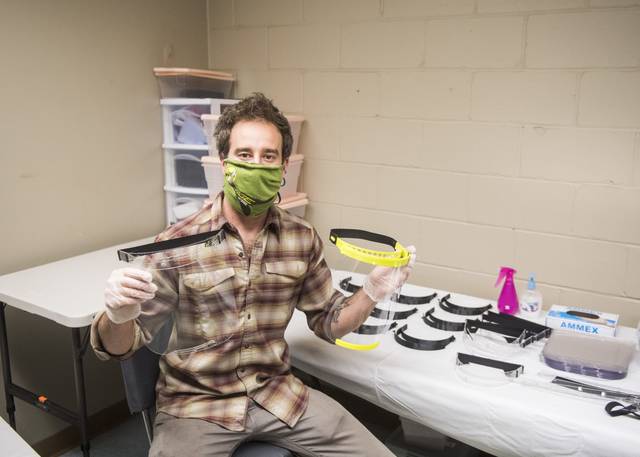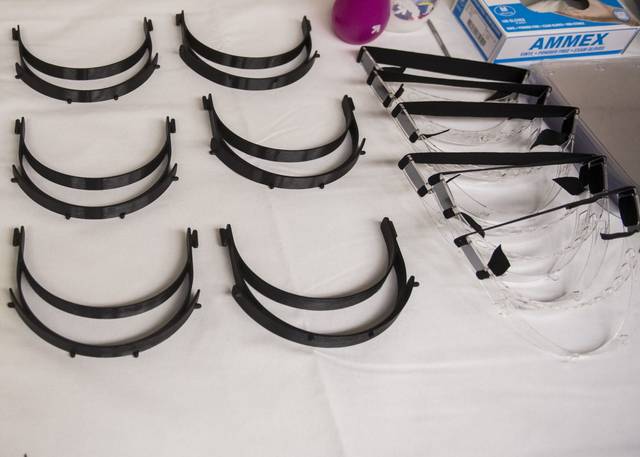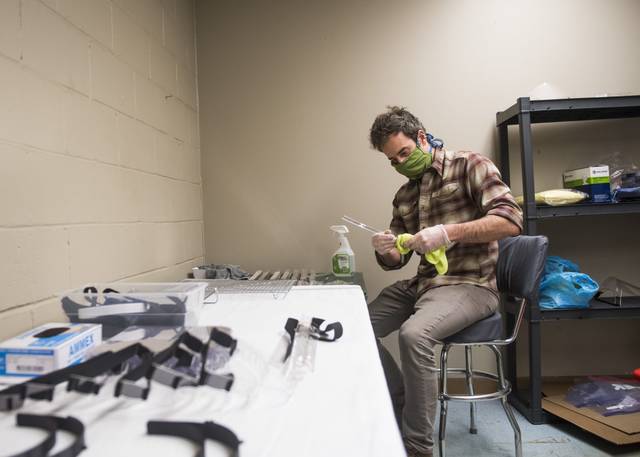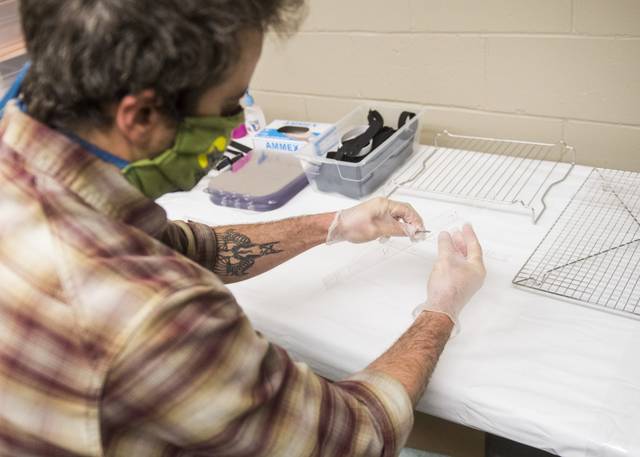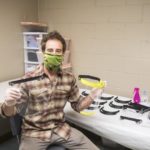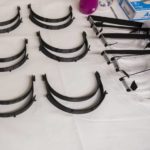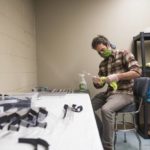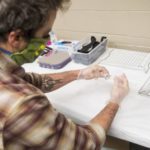Volunteer emergency and ambulance services and small health care facilities in Western Pennsylvania are turning to grassroots efforts to locate personal protective equipment. In the coronavirus pandemic, they find themselves in competition with large hospitals and health systems across the country for resources.
At The Children’s Home of Pittsburgh, “we are taking precautions and treating everybody like they have something, so that nobody gets cross-contaminated,” said CEO Pamela Keen. “That being the situation, we needed more PPE. Because we’re so small, we don’t have the buying power that a large hospital system or large health care system would have.”
Many of the children treated at the Children’s Home, which operates a small, pediatric specialty hospital for patients up to 21 years old in Pittsburgh’s Bloomfield neighborhood, are experiencing illnesses that already required them to be in isolation. The 64 nurses on staff are required to wear the gear necessary to maintain that sanitary environment.
Precautions taken because of the coronavirus have heightened those efforts. At the same time, the distributors that the Children’s Home normally relies on for supplies are drained because they’re filling larger orders for facilities across the country.
“We’re not looking to hoard supplies, we’re just looking for supplies to keep everybody safe on a daily basis,” she said.
Grassroots solutions
Items in short supply include N95 masks, three-ply surgical masks and isolation gowns, along with face shields — which can be reused — and hand sanitzer.
The Children’s Home was able to obtain some of these supplies through a grassroots effort launched in March called PPE Connect PGH.
“That equipment is out there,” said Alejandro Sklar, co-founder of PPE Connect PGH. “So that just seemed like such a good and tangible starting point for us: Let’s get a log of this equipment, let’s call companies, let’s get the word out to individuals and find this equipment.”
PPE Connect PGH was modeled after a similar effort in Washington state called the Seattle Mask Brigade, which has redistributed more than 12,000 N95, surgical and other types of masks across King County. Similar efforts have sprung up across the country, including in cities like Boston and Los Angeles.
Here’s how it works: PPE Connect PGH sets up a public ledger online to connect people or facilities that need PPE with individuals or businesses willing to donate PPE.
Then, PPE Connect PGH members pick up and drop off of those supplies.
The majority of donations so far have come from individuals. The donations fall between two to 20 items, said Davit Davitian, also a co-founder of PPE Connect PGH.
Those requesting supplies have included private practices; transitional or long-term care homes for the elderly, children, people with special needs and those in recovery from addiction; as well as municipal fire and emergency medical services stretching across Alleghey, Butler, Washington and Westmoreland Counties.
Demand is consistently outstripping supply, Davitian said.
PPE Connect PGH has received nearly 200 requests for supplies from individual health care providers or private practices, residential or long-term care facilities, emergency or ambulance services and volunteer fire departments from across Western Pennsylvania, the public ledger shows. That totals more than 7,000 pieces of protective gear.
As of April 16, they’ve distributed 592 N95 masks, 1,495 other types of masks, hundreds of gloves and 10 isolation gowns.
They’ve also partnered with Pittsburgh-based RE2 Robotics, the University of Pittsburgh, Robert Morris University and Wilkinsburg-based makerspace Protohaven to manufacture and assemble 693 made-to-order plastic face shields.
Larger requests are redirected to Allegheny County Emergency Services.
“We’re just going to be a drop in the bucket,” Davitian said. “But our goal is to help these facilities that are lower in the priority chain just get by until the actual industry ramps up and gets to the capacity that it needs to. Ideally, the need for us disappears after one or two months.”
Preparing for a long-term shortage
Keen, of the Children’s Home, worries that PPE shortages might continue longer.
“We anticipate that this is going to go on for a while,” Keen, of the Children’s Home, said. “This obviously is not going to resolve itself overnight.”
Large health care systems and hospitals are likely to continue to be served first by the national stockpile and whatever supply chains are available, said Jeremy Bonfini, CEO of the Allegheny County Medical Society, which is contributing funding to PPE Connect PGH through its Covid-19 Front Line Relief Fund.
“The nursing homes and smaller organizations will always be second or third in the supply chain distribution,” Bonfini said. “It’s just the nature of the beast. So it’s up to volunteers and donations to help fill that gap.”
Others who have received gear through PPE Connect PGH, like Foxwall EMS Chief Josh Worth, are looking ahead to future surges in cases.
“We have multiple supply channels that we usually get that through,” Worth said. “But because of the high demand, all of that quickly dried up.”
Call volume has been low, and Worth said his department, which serves Fox Chapel, Aspinwall and surrounding communities, was able to fill in some gaps with supplies from Allegheny County Emergency Services. But he needs to make sure his crews are prepared if cases spike again.
“We look at other states and other areas that have been hit hard, and see the struggles they’re having with PPE,” Worth said. “We don’t want to run into that same struggle, and run into a bunch of paramedics and EMTs that are getting sick and getting this virus.”


